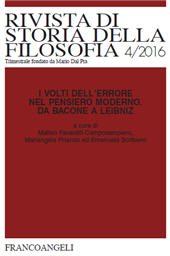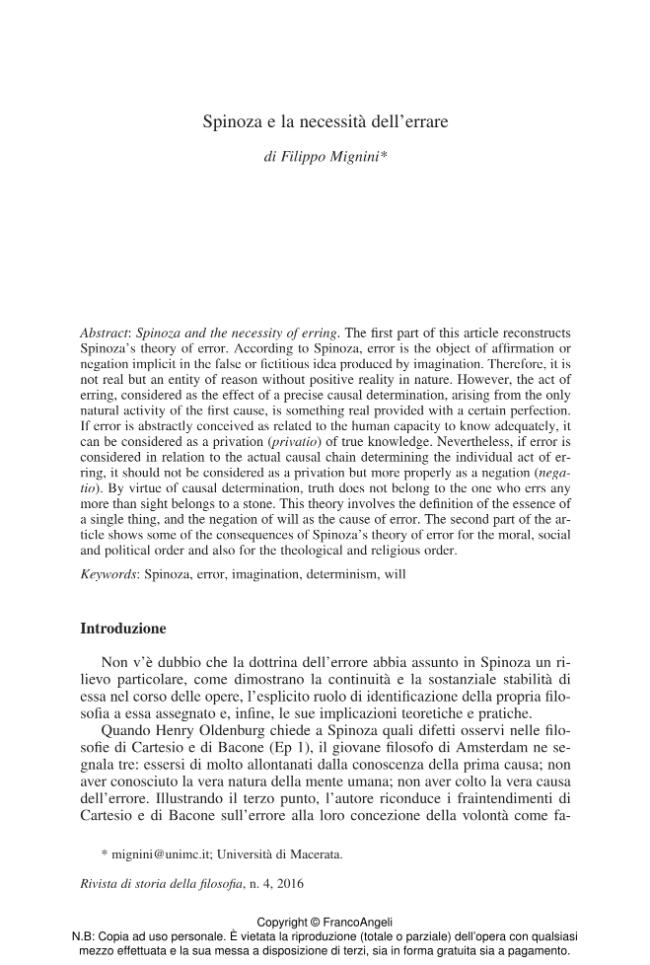Spinoza e la necessità dell'errare
693-711 p.
The first part of this article reconstructs Spinoza's theory of error. According to Spinoza, error is the object of affirmation or negation implicit in the false or fictitious idea produced by imagination. Therefore, it is not real but an entity of reason without positive reality in nature. However, the act of erring, considered as the effect of a precise causal determination, arising from the only natural activity of the first cause, is something real provided with a certain perfection. If error is abstractly conceived as related to the human capacity to know adequately, it can be considered as a privation (privatio) of true knowledge. Nevertheless, if error is considered in relation to the actual causal chain determining the individual act of erring, it should not be considered as a privation but more properly as a negation (negatio). By virtue of causal determination, truth does not belong to the one who errs any more than sight belongs to a stone. This theory involves the definition of the essence of a si
ngle thing, and the negation of will as the cause of error. The second part of the article shows some of the consequences of Spinoza's theory of error for the moral, social and political order and also for the theological and religious order. [Publisher's Text].
Fait partie de
Rivista di storia della filosofia : LXXI, 4, 2016-
Articles du même numéro (disponibles individuellement)
-
Informations
Code DOI : 10.3280/SF2016-004009
ISSN: 1972-5558
KEYWORDS
- Spinoza, error, imagination, determinism, will



